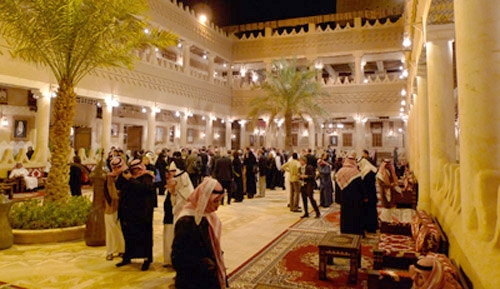The Saudi education and health sectors' shares of approved budget expenditures for the next fiscal year have been increased over 18 percent compared to the budget of fiscal year of 2012, with an allocation of SR 204 billion for education and SR 100 billion for health, for a total of SR 304 billion. In the past fiscal year it had SR 168.6 billion for education, and SR 86.5 billion riyals for health.
According to a study conducted by Aleqtisadia newspaper for the financial allocations for the two sectors in the budgets between 2004 and 2013 indicated that the size of government spending jumped from SR 88 billion in 2004 to SR 304 billion in 2013, an increase of 245 percent. This increase confirms the government's desire to enhance development process and spur economic growth by focusing on development projects for the education and health sectors.
The allocations for public education sector, higher education and workforce training have reached nearly SR 204 billion, representing about 25 percent of the approved expenditures in the budget, and an increase of almost 21 percent of what was allocated to the sector in the budget of current fiscal year.
In the field of the public education sector, the work will continue on implementation of King Abdullah Bin Abdul Aziz Public Education Development Project (Tatweer), which its cost amounting to SR 9 billion through the Education Development Holding Company.
The budget includes establishing 539 schools for girls and boys in all regions with cost estimated to SR 3.9 billons in addition to 1,900 schools that currently under construction.
About 750 new schools were completed in this year, reducing the proportion of rented premises in Kingdom to 22 percent.
Also included is the rehabilitation of 2,000 school buildings to improve learning atmosphere in tune with modern developments in the field besides the renovations of the buildings in various educational areas, adding classrooms, equipping and furnishing of schools as well as providing school laboratories with educational means and computer labs and at a cost of SR 3.2 billion.
In addition of the approval of the project that provides the requirements of safety in school buildings and administrative at cost of SR 800 million.
For higher education, the new budget includes appropriations for the Saudi E-University besides appropriations for completing construction of campuses for the newly created universities including housing of faculty at cost over SR 13.4 billons and the approval of expenditures required for the opening of 15 new faculties.
The budget also included an additional phase of new housing project faculty and which is currently being implemented, bringing the total costs allocated to it in the budget of 14.2 billion riyals. The budget also includes approval to establish three new university hospitals to reach the approved costs for the establishment of the university hospitals to more than SR 4.2 billion.
In regard of the Foreign Scholarship Program of the Custodian of the Two Holy Mosques, the number of scholarships for students and staff studying abroad under the supervising of the Ministry of Higher Education in the range of 120,000 students with annual expenditures up to SR 21.6 billion riyals.
In the area of technical and vocational training, the budget features funds for establishing of the new colleges and institutes at estimated value of more than SR 3.5 billion, and the expenses of opening and operating a number of professional institutes and colleges for girls in order to increase the capacity of colleges and institutes of the Technical & Vocational Training Corporation (TVTC).
The health services and social development have reached nearly SR 100 billion, representing an increase of almost 16 percent of what was allocated to the sector in the budget of current fiscal year.
The budget includes new projects of primary care centers throughout the Kingdom, 12 new hospitals and establishment of 12 new hospitals and medical centers.
There are 102 hospitals under construction with a total capacity of 23,000 beds in addition to five medical cities with a total capacity of 6,200 beds.
During the current fiscal year the Kingdom received 29 new hospitals with a total capacity of 5,750 beds.
For social services, the new budget includes appropriations to build 20 sports clubs, 15social centers, social welfare and labor offices. In addition, it includes further support for poverty-reduction programs that will shorten the time required to eradicate poverty with allocation of more than SR 29 billons.
Arab News
2 January






















































